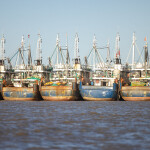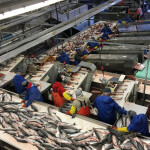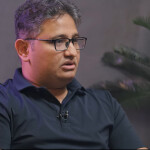Attendees, media and likely many of the speakers at last week’s Global Outlook for Aquaculture Leadership (GOAL) conference in Ho Chi Minh City, Vietnam, must have been somewhat surprised that so much time and energy was spent on social issues as opposed to the environmental impacts of fish farming alone. The two, however, are now permanently intertwined. (Food safety would be the “third leg of the stool” of a global seafood procurement policy, if metaphors are your thing.)
It reflects positively on the industry, and the entire seafood supply chain for that matter, that a large percentage of the discourse at the global gathering was devoted to human rights and responsible treatment of workers on fishing vessels, on farms and in processing plants. Even if certain phrases were repeated ad infinitum or sounded straight out of the attorney playbook, nobody was ducking the issue. They simply can’t afford to. If ignorance is forgivable, avoidance is not.
While labor abuses in seafood aren’t a new phenomenon, recent investigative reports by Environmental Justice Foundation and The Guardian cast a negative light on the seafood industry, powered by the reach of social media. “The emergence of modern slavery has taken us by surprise,” remarked Jackie Healing, an advisor for Australian supermarket company Coles during the event’s “Retail Roundtable” panel discussions, which took a deep dive into environmental and social issues. “Understanding the issue is 80 percent of the solution.”
During the roundtables, approximately 25 speakers from around the world, representing multiple links of the supply chain, were asked about all aspects of sustainability. Assurance of fair treatment of workers kept coming up. When the topic turned to illegal, unregulated and unreported (IUU) fishing, Kathleen Mullen-Ley, project manager for FishWise in Santa Cruz, Calif., USA, drew a straight line from IUU to human rights abuses. “It’s not just about the environment anymore,” she said.
She’s right, and the depth of the discussion on social matters was refreshing and responsible. A passing mention of the issue, or worse, a general shrug of the shoulders and a prompt return to business as usual in the wake of shocking media reports could have done even more damage.
Here are a handful of other memorable quotes from the roundtables:
Bill DiMento, corporate director of sustainability, High Liner Foods (USA and Canada): “We found ourselves in the crosshairs on this. We abhor poor labor practices anywhere in the supply chain. It’s our moral responsibility, for our company and for our shareholders, but primarily for our customers, to educate and work with our suppliers. It doesn’t stop there; it goes far down their supply chains. Our name was out there in the media associated with poor practices. We continue to work hard to eliminate it from our supply chain.”
Scott Williams, BJ’s Wholesale Club (USA): “Some of our members don’t care about price; they want to know that all people are treated well. We have to do all those things for the members. The environmental piece of sustainability and seafood has become a competitive advantage for some marketers. With social issues, it’s not a competitive advantage to say our product didn’t [hurt anyone].”
Mike Berthet, M&J Seafood (UK): “Some industries have not been able to move at the pace that the market requires. At the government level, if they don’t help farms and processors comply with third-party audits, then we’ll have to move away from that country as a supplier; we’ve had to do that, it’s a real issue. It needs input from governments around the world. All we can do is explain what the market requires.”
When asked about GSSI, the Global Sustainable Seafood Initiative, a collaborative effort aimed at benchmarking global certification standards, Maisie Ganzler, VP-strategy for Bon Appetit Management Co., admitted she didn’t know what the acronym stood for. Her remark earned some laughs but also a lot of nodding heads, for she was brave enough to say that she relied on her NGO partner (Bon Appetit partners with the Monterey Bay Aquarium’s Seafood Watch program) to understand those issues so she can focus on her job, which is procuring seafood for the 200 million meals Bon Appetit serves annually.
The alphabet soup that seafood sustainability has become may be tough for some to swallow, but every group and every individual involved with improving practices regarding seafood production has something to say. They all deserve to be heard, and it’s at events like GOAL where they can make a difference.





